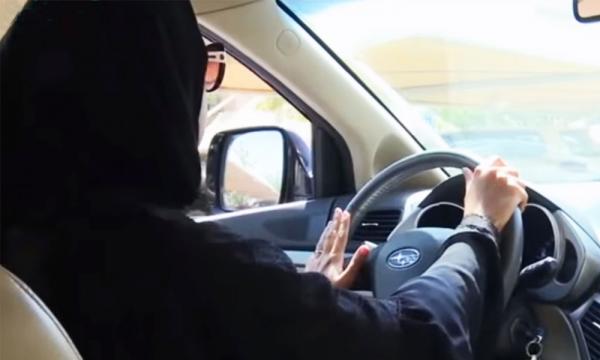An 18-year-old Saudi woman’s flight from what she said was an abusive family has rallied opposition to the kingdom’s male guardianship system, still a major constraint on women despite the conservative Muslim country’s efforts to open up.
Some freedoms have been granted under Crown Prince Mohammed bin Salman, who ended a ban on women driving, eased restrictions on gender mixing, and championed firsts such as allowing women to serve in the armed forces.
Yet those changes have been accompanied by a crackdown on dissent, including the arrest and alleged torture of some of the activists who campaigned for decades to improve women’s rights - as well as Muslim preachers who opposed them.
Many activists are calling for an end to the guardianship system, which has been chipped away at slowly over the years but remains in force.
Under the system, every Saudi women is assigned a male relative - often a father or husband but sometimes an uncle, brother or even a son - whose approval is needed if she is to marry, obtain a passport and travel abroad.
The plight of Rahaf Mohammed al-Qanun, who slipped away from her family last weekend during a holiday in Kuwait, recalls the cases of other Saudi women who fled mistreatment only to be forcibly returned to the kingdom and never heard from again.
Amid global outrage at Saudi Arabia over last year’s murder of journalist Jamal Khashoggi, Qanun’s tweets from Bangkok airport sparked an online campaign. She barricaded herself inside a hotel room for hours until the Thai government reversed its decision to send her home.
In some countries, her adult age would have prevented the authorities from telling her family anything about her. In Saudi Arabia, her gender meant she was her father’s ward.
“Remove guardianship and we won’t all migrate” trended this week on Twitter in Saudi Arabia.
Mai, who identified as a 36-year-old physician, said she was embarrassed to have two children and a degree from Harvard University but still be viewed as a minor.
“I am trusted to make life and death decisions for patients, trusted to raise kids ... but not trusted to make my own decisions regarding MY life. The irony! #EndMaleGuardianship,” she tweeted.
Qanun was also attacked on social media for shaming her family and renouncing Islam, highlighting the delicate balance Prince Mohammed must strike in reforming Saudi society without destabilising it.
Family problem
Guardianship’s status between law and custom makes it a thorny issue for Prince Mohammed, who indicated last year he favoured ending the system but stopped short of endorsing its annulment.
“If I say yes to this question, that means I’m creating problems for the families that don’t want to give freedom for their daughters,” he told US magazine The Atlantic.
Without a codified system of law to go with the texts making up syariah, or Islamic law, the Saudi police and judiciary have long cited social customs in enforcing certain prohibitions on women. Many aspects of guardianship stem from informal practice rather than specific laws.
Saudi Arabia, one of the world’s most gender-segregated nations, is ranked 138 of 144 states in the 2017 Global Gender Gap, a World Economic Forum study on how women fare in economic and political participation, health and education.
Activists launched the “I Am My Own Guardian” campaign in 2016 demanding legal representation.
King Salman issued an order the following year allowing women to benefit from services such as education and healthcare without the consent of a male guardian, though rights groups say this is being implemented only on a limited basis.
Other challenges remain. There is no formal bar on women buying or renting property but it can be difficult for them to do so without a male relative, according to rights groups.
Authorities have removed restrictions on women in the labour code and ended formal requirements for them to obtain a guardian’s permission to work, but some employers still demand this and are not penalised for doing so.
The kingdom also ended requirements that a woman bring a male relative to identify her in court, and women can obtain a licence and drive cars without their guardian’s approval.
Mohammed al-Issa, a former justice minister who sits on the kingdom’s top clerical body, told Reuters last year there was no reason why women should be barred from obtaining a passport or travelling without the consent of a male guardian but it may take time for society to accept that.
Some Saudi women do not want to wait.
“We have the right (to) be treated as adults since we’re above 18 years,” a woman named Fatin wrote online. “This guardianship is no more than modern enslavement system!”
- Reuters


